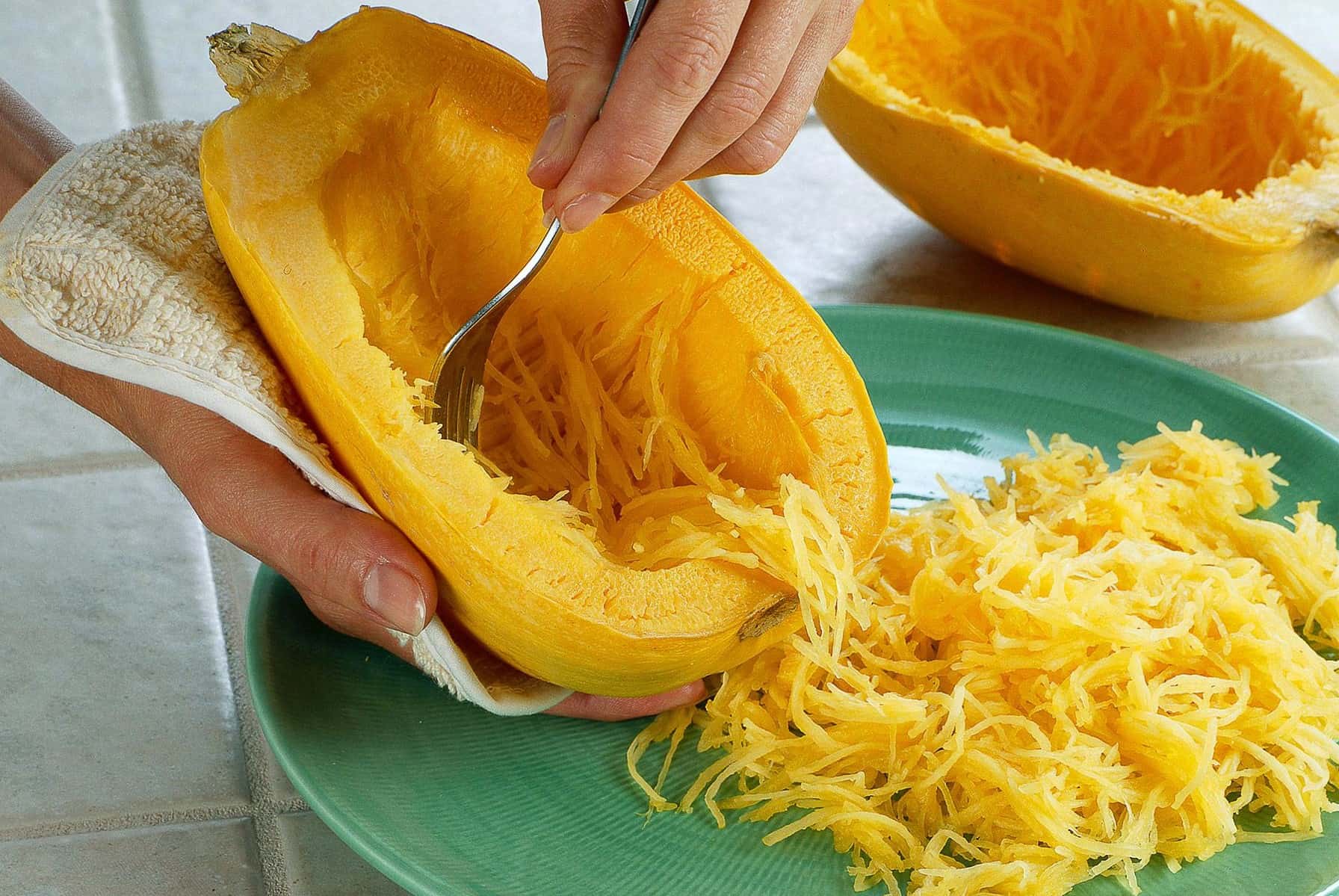
What is spaghetti squash? It's a type of winter squash that, when cooked, has flesh that shreds into strands resembling spaghetti. This unique vegetable offers a low-carb alternative to pasta, making it popular among health-conscious eaters. Why should you care about spaghetti squash? Besides being nutritious, it's versatile in recipes, easy to prepare, and delicious. Whether you're looking to cut down on carbs, add more veggies to your diet, or simply try something new, spaghetti squash can be a game-changer. Ready to learn more? Here are 25 fascinating facts about this amazing squash that will make you want to add it to your next meal.
Key Takeaways:
- Spaghetti squash is a low-calorie, nutrient-packed vegetable that can be used as a healthy alternative to pasta in various dishes, making it a favorite among health-conscious eaters.
- Growing spaghetti squash is easy with the right conditions, making it a fun and rewarding option for those with a green thumb.
What is Spaghetti Squash?
Spaghetti squash is a unique type of winter squash known for its stringy flesh that resembles spaghetti noodles when cooked. This versatile vegetable can be used in various dishes, making it a favorite among health-conscious eaters.
-
Spaghetti squash is a member of the Cucurbitaceae family, which includes pumpkins, cucumbers, and melons.
-
The squash gets its name from the way its flesh separates into long, thin strands after cooking.
-
It comes in various colors, including yellow, orange, and ivory.
Nutritional Benefits of Spaghetti Squash
Spaghetti squash is not only tasty but also packed with nutrients. Here are some key nutritional benefits that make it a great addition to any diet.
-
One cup of cooked spaghetti squash contains only about 42 calories, making it a low-calorie food.
-
It is rich in vitamins A and C, which are essential for maintaining healthy skin and a strong immune system.
-
The squash is a good source of dietary fiber, aiding in digestion and helping to keep you full longer.
-
It contains antioxidants like beta-carotene, which can help protect your cells from damage.
Cooking and Preparation
Preparing spaghetti squash can seem daunting, but it's quite simple once you know the basics. Here are some facts to help you get started.
-
You can bake, microwave, or boil spaghetti squash to achieve its signature noodle-like texture.
-
To bake, cut the squash in half, remove the seeds, and place it cut-side down on a baking sheet. Bake at 400°F for about 40 minutes.
-
Microwaving is quicker: pierce the squash with a fork, microwave for 10-12 minutes, then cut it open and scrape out the strands.
-
Boiling involves cutting the squash into pieces and boiling for about 20 minutes until tender.
Culinary Uses
Spaghetti squash's versatility makes it a popular ingredient in many dishes. Here are some ways to incorporate it into your meals.
-
Use it as a low-carb substitute for pasta in dishes like spaghetti and meatballs.
-
Mix it with marinara sauce and cheese for a healthy take on lasagna.
-
Add it to soups and stews for extra texture and nutrition.
-
Serve it as a simple side dish with olive oil, garlic, and herbs.
Growing Spaghetti Squash
If you have a green thumb, you might be interested in growing your own spaghetti squash. Here are some tips to get you started.
-
Spaghetti squash plants need full sun and well-drained soil to thrive.
-
Plant seeds in late spring after the danger of frost has passed.
-
The plants require regular watering, especially during dry spells.
-
Harvest the squash when the skin turns a deep yellow and is hard to the touch.
Fun Facts About Spaghetti Squash
Beyond its culinary and nutritional benefits, spaghetti squash has some interesting trivia associated with it.
-
Spaghetti squash was first introduced to the United States in the 1930s.
-
It is sometimes called "vegetable spaghetti" due to its noodle-like appearance.
-
The squash can be stored for up to three months in a cool, dry place.
-
Each spaghetti squash plant can produce up to six fruits in a growing season.
-
The seeds of spaghetti squash can be roasted and eaten as a snack, similar to pumpkin seeds.
-
Spaghetti squash is often used in gluten-free and paleo diets as a pasta alternative.
Final Bite of Spaghetti Squash Facts
Spaghetti squash is more than just a quirky vegetable. It's packed with nutrients, low in calories, and super versatile in the kitchen. Whether you're looking to cut carbs, boost your vitamin intake, or just try something new, this squash has got you covered. From its origins in China to its rise in popularity in the United States, spaghetti squash has a rich history. Cooking it is a breeze, and the results are always delicious. Plus, it's a great way to sneak more veggies into your diet. So next time you're at the grocery store, grab a spaghetti squash and give it a try. You'll be surprised at how much you enjoy it. Happy cooking!
Frequently Asked Questions
Was this page helpful?
Our commitment to delivering trustworthy and engaging content is at the heart of what we do. Each fact on our site is contributed by real users like you, bringing a wealth of diverse insights and information. To ensure the highest standards of accuracy and reliability, our dedicated editors meticulously review each submission. This process guarantees that the facts we share are not only fascinating but also credible. Trust in our commitment to quality and authenticity as you explore and learn with us.


